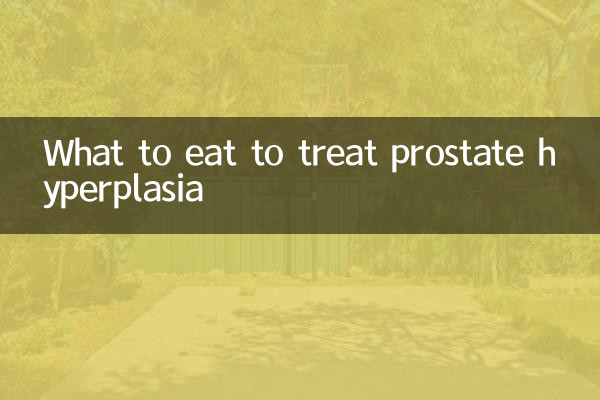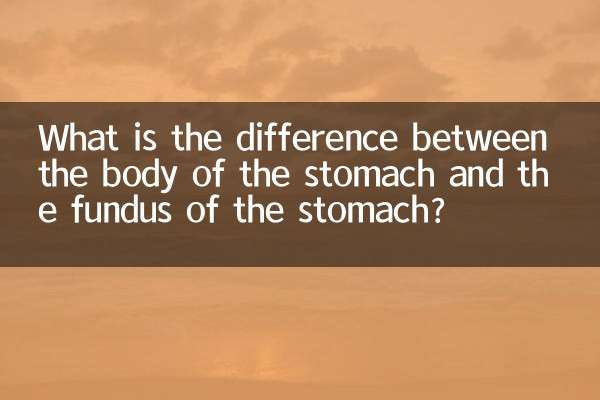What to eat to treat prostate hyperplasia
Prostatic hyperplasia (BPH) is a common disease in men, especially among middle-aged and elderly people. In addition to drug treatment and surgical intervention, dietary modification is also an important means to relieve symptoms. This article will combine the hot topics and hot content on the Internet in the past 10 days to sort out the foods and related data that are helpful in treating prostate hyperplasia.
1. Dietary principles for prostate hyperplasia

The core of dietary conditioning is to reduce inflammation and improve urinary system function. The following are the dietary suggestions hotly discussed by netizens in the past 10 days:
| dietary principles | Specific measures |
|---|---|
| Increase antioxidant foods | Eat more foods rich in vitamins C, E and lycopene |
| Supplement zinc | Zinc is essential for prostate health, recommend oysters, nuts, etc. |
| Reduce spicy irritation | Avoid alcohol, caffeine and spicy food to reduce urinary tract irritation |
| drink more water | Drink an appropriate amount of water to avoid urine concentration, but it needs to be controlled at night |
2. Recommended foods for treating prostate hyperplasia
According to recent health discussions, the following foods are widely recommended as auxiliary treatments for prostate hyperplasia:
| food category | specific food | Efficacy |
|---|---|---|
| Vegetables | tomatoes, broccoli, pumpkin | Rich in antioxidants, reduces inflammation |
| Fruits | Pomegranate, blueberry, watermelon | Improve urinary system function |
| Nuts | Walnuts, almonds, pumpkin seeds | Rich in zinc and omega-3 fatty acids |
| seafood | Oysters, salmon | Supplements zinc and anti-inflammatory ingredients |
| drinks | Green tea, pumpkin seed tea | Diuretic and anti-inflammatory |
3. Recently popular dietary therapy programs
The following are the dietary treatment options for prostate hyperplasia that have been discussed frequently by netizens in the past 10 days:
| Diet plan | Preparation method | Recommended frequency |
|---|---|---|
| Tomato and Pumpkin Soup | Cut tomatoes and pumpkin into cubes and cook the soup, add a little olive oil | 3 times a week |
| pomegranate juice | Squeeze fresh pomegranate juice, add honey to taste | 1 cup daily |
| pumpkin seed powder | Dry and grind pumpkin seeds into powder and drink with warm water. | 1-2 times a day |
4. Foods to avoid
Patients with prostatic hyperplasia should reduce their intake of the following foods:
| food category | specific food | adverse effects |
|---|---|---|
| high fat food | Fried food, fatty meat | aggravate inflammation |
| stimulating drinks | coffee, alcohol | irritate urethra |
| High salt food | Pickled products, processed foods | Cause edema |
5. Summary
Dietary conditioning for prostate hyperplasia requires long-term persistence, combining the principles of antioxidants, zinc supplementation, and anti-inflammatory, and choosing suitable foods. Among recent hot topics, foods such as tomatoes, pumpkin seeds, and pomegranates are highly praised, while high-fat and spicy foods are listed as taboos. If the symptoms are severe, you still need to seek medical treatment in time.
The above content is based on hot discussions across the Internet in the past 10 days and is for reference only. Please consult a professional doctor for specific treatment options.

check the details

check the details